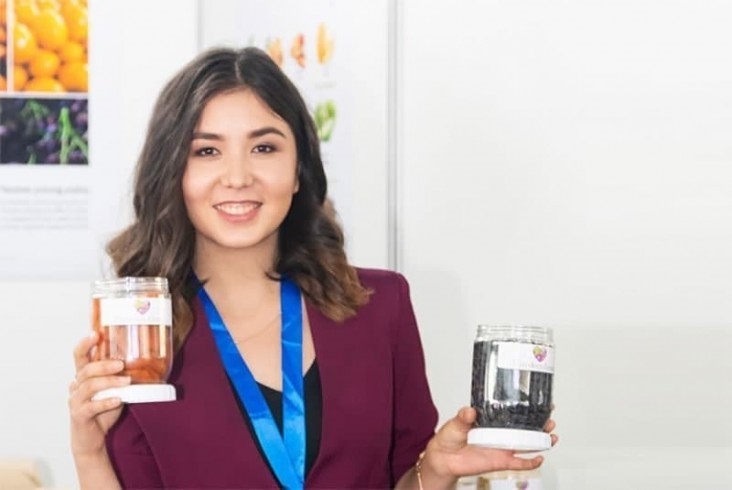When Covid-19 hit Tajikistan, it became nearly impossible for students of Gafurov College, a private medical college, to attend in-person classes. But, through the Women of the Steppe program, provided by the European Bank for Reconstruction and Development (EBRD) and supported by the Women Entrepreneurs Finance Initiative (We-Fi), the college introduced online learning.
The medical training school with services in obstetrics, pharmacy, nursing, and cosmetology was founded in 2014 by Shohida Aduraufova. As part of the support program, a consultant was hired to help develop an online teaching platform for the college. The platform now provides an immersive virtual classroom for students who cannot attend in-person classes due to the Covid pandemic or other personal challenges.
The online business process has also improved administrative management, reduced overhead cost, and increased responsiveness to concerns between students and administration.

Nearly 90 percent of students enrolled at Gafurov college are young women. The institution intends to leverage its new capabilities to extend learning opportunities to students living in rural Tajikistan who would otherwise not attend a medical college.
As an implementing partner, the EBRD runs two We-Fi-funded programs: the Women of the Steppe program and the Stepping up for Women program. These programs provide access to finance and business know-how support to women-led and women-owned SMEs. For example, through a one-to-one advisory and capacity building, women entrepreneurs like educator Abduraufova can grow their businesses.
In Uzbekistan, almost 80 percent of the workforce relies on local small and medium-sized enterprises for employment opportunities. Therefore, empowering women’s entrepreneurship is critical to the sustainability of the economy.
“At the EBRD, We-Fi funding is very central to our mission to expand access to financial and non-financial services for women entrepreneurs as well as building an inclusive entrepreneurial ecosystem in the relevant regions,” said Ines Rocha, EBRD’s Director for Financial Products, SME Finance, and Development during a recent webinar about the program in Central Asia.

Dildora Atajanova is the founder of Teodora Goods LLC
Another beneficiary of the EBRD program, Dildora Atajanova of Teodora Goods LLC, received IT support to improve her access to foreign markets. Her company exports fresh, frozen, and dried vegetables, fruits, and nuts from Uzbekistan. The firm has successfully served international customers in France, Oman, the United Arab Emirates (UAE), China, and Mongolia. However, the challenge of quality controls throughout the supply chain has been a significant barrier to the business expansion of Atajanova and other exporters.
To address this challenge, Atajanova worked with an IT consultancy firm to develop ‘Dalatek,’ a mobile application, to digitalize the agricultural value chain, connect farmers with key stakeholders, including retailers, insurance companies, banks, exporters. The entrepreneur also hopes that digitalization will help to promote compliance with best-practice product standards for agricultural goods in the country. The WSME-support program currently helps Atajanova to promote Dalatek among key stakeholders in Uzbekistan and encourage a mass uptake of the app.
